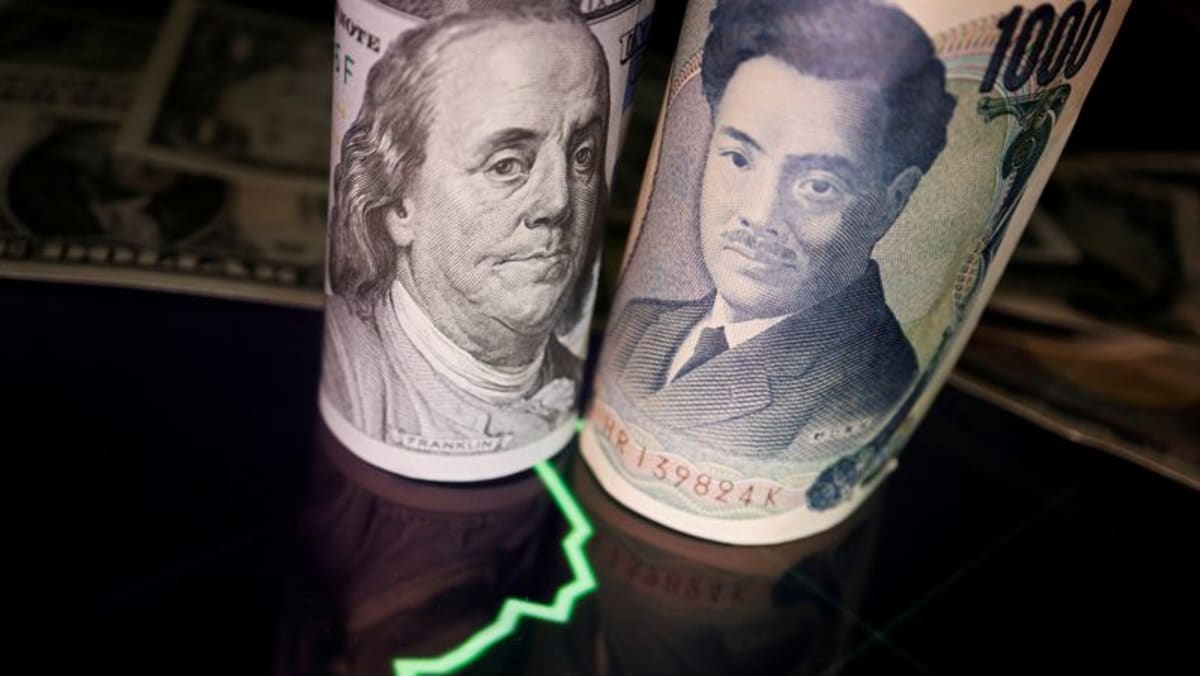Buoyant dollar pushes fragile yen to within striking distance of 150

SINGAPORE : The dollar kicked off the last quarter of the year on the front foot on Monday as the prospect of higher-for-longer U.S. rates provided solid support, pushing the yen to an 11-month low.
Currency moves were subdued in early Asia trade with parts of Australia out for a holiday and China away for its Golden Week, though analysts said a narrowly-averted U.S. government shutdown could bring some relief to markets.
The yen slid to a roughly 11-month low of 149.74 per dollar, as the Japanese currency continued its slow-but-steady decline toward the 150 mark, a level which some see as a line in the sand that would spur Japanese authorities to intervene in the currency market as they did last year.
“Fear of intervention by the BOJ above the 146 level has come and gone and the currency is now above 148 to the dollar and the BOJ remains absent from currency markets,” said Olivier d’Assier, Axioma’s head of applied research for APAC.
A summary of opinions at the BOJ’s September meeting out on Monday showed policymakers discussed various factors that must be taken into account when exiting ultra-loose policy.
“They’re wary of tightening too early and squashing… a rise in inflation and growth,” said Jarrod Kerr, chief economist at Kiwibank. “They deserve to be cautious, though.”
In the broader currency market, the euro lost 0.07 per cent to $1.0565, after ending the previous quarter with a 3 per cent fall, its worst performance in a year.
Sterling was last 0.13 per cent lower at $1.2188, having similarly slid nearly 4 per cent against the dollar in the third quarter.
The U.S. dollar index, however, stood not too far from its recent 10-month high and was last at 106.24, after clocking its best quarterly performance in a year last month thanks to persistently hawkish Federal Reserve rhetoric.
“I’d rather be in dollars at the moment than euros or pounds or others,” said Kiwibank’s Kerr. “I think the dollar will find a bit more support.”
The U.S. Congress late on Saturday passed a stopgap funding bill with overwhelming Democratic support in a bid to avoid the federal government’s fourth partial shutdown in a decade, a move which Pepperstone’s head of research Chris Weston said “should be welcomed by risky assets”.
“We also now have a firm understanding that the U.S. Labor Department will release nonfarm payrolls data this Friday, as well as the U.S. CPI report on 12 October, which may have not been the case had the (government) shut down,” he said.
“This puts the 1 November FOMC meeting back on the table as a potential venue for a further 25-basis-point rate hike.”
Elsewhere, the Australian dollar fell 0.07 per cent to $0.64305, while the kiwi edged 0.1 per cent lower to $0.59925.
Source: CNA















